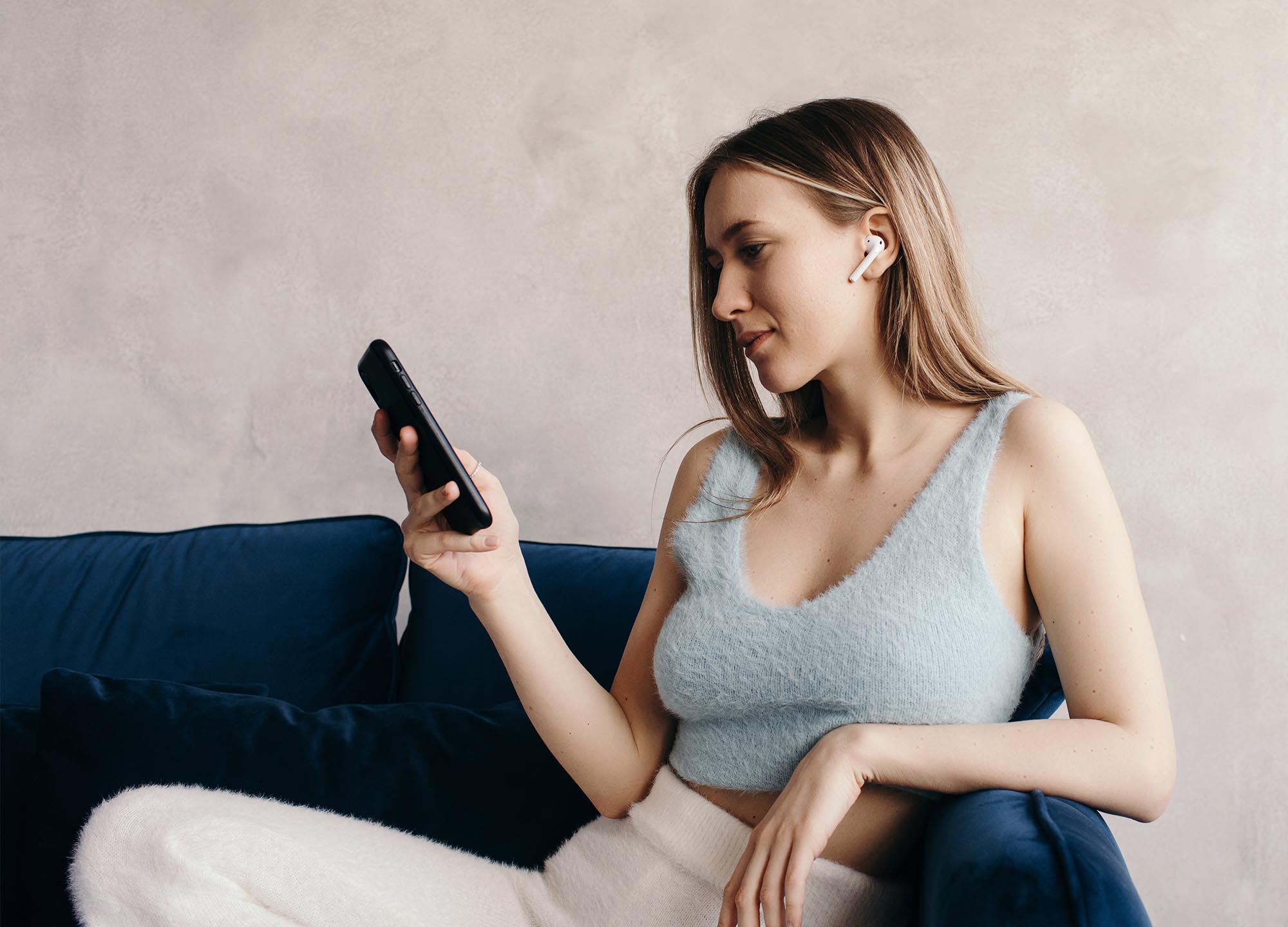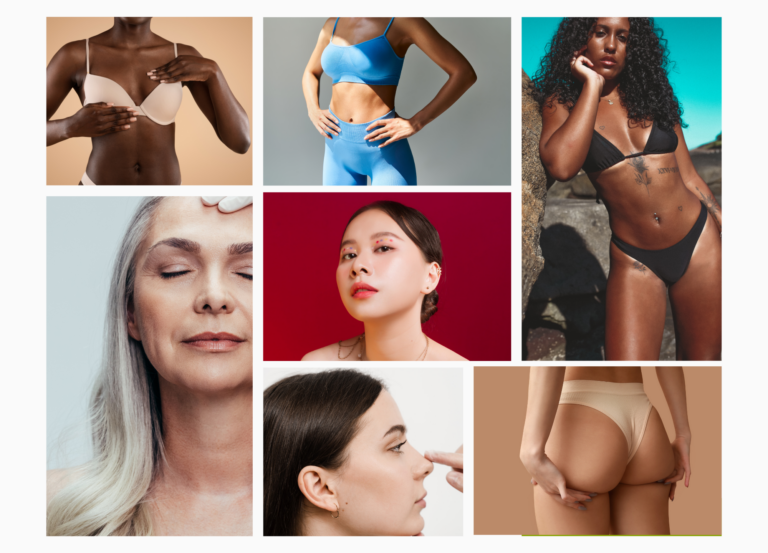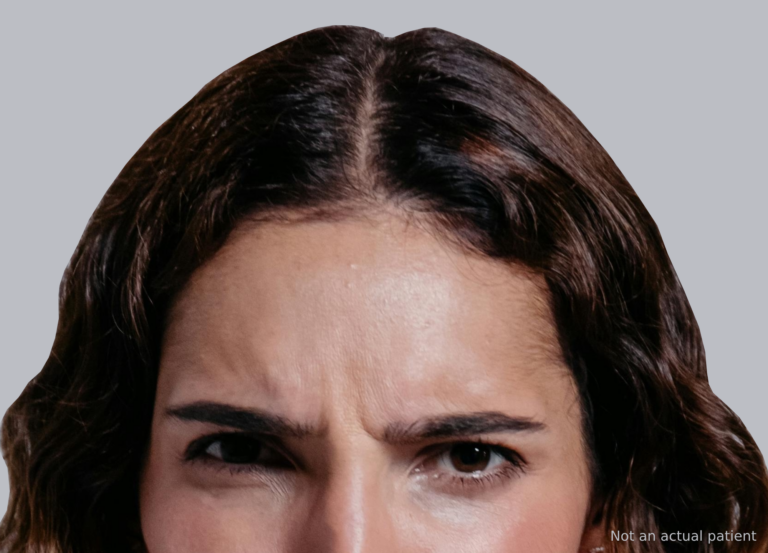Call it kismet—an audio app launching mere weeks into the pandemic, offering a cure for a social malady that didn’t yet exist: reflection fatigue. As if anticipating our inevitable need to get offscreen, Clubhouse doesn’t request access to your iPhone’s camera or compel you to buy a ring light—in fact, the only faces featured on the platform are the small, static snaps atop users’ profiles. The invite-only app doesn’t demand painstaking curation or choreography. There are no likes or comments or #ads. And the content is, for now, uniquely unfiltered: barenaked voices.
Ironically, it’s this absence of ostentation—the elevation of substance over style—that’s drawing the famously looks-focused beauty industry to Clubhouse. “I love that it completely removes the superficial aspect that tends to plague other social media apps—the filters, viral dances, the pressure to make things perfect,” says Dr. Fatima Fahs, a board-certified dermatologist in Grosse Pointe, Michigan. Echoing her sentiment, board-certified Dallas dermatologist Dr. DiAnne Davis adds, “There are no photos, captions, hashtags—it’s just your authentic voice, and that’s something you have to stand behind when you’re on the stage.” (This “stage” is for speakers, who’ve been granted mic access. Audience members can join panelists on stage by virtually raising their hands to contribute opinions or ask questions.)
Dermatologists compare the Clubhouse experience to an interactive podcast, connecting experts from diverse backgrounds, with myriad perspectives, on topics of shared interest. “In the beauty rooms that are done well, you get to hear a collaboration between content creators, makeup artists, cosmetic chemists, and dermatologists,” says Dr. Kavita Mariwalla, a board-certified dermatologist in West Islip, New York. “In real life, those people are rarely in the same room or on the same panel—Clubhouse has broken down that barrier.”
This mingling of skin-care know-it-alls certainly keeps things interesting—but it can also breed tension at times. “We can all learn from each other, but sometimes there is disagreement between different fields,” explains Dr. Heidi Goodarzi, a board-certified dermatologist in Newport Beach, California. “There are some topics in skin care that are more a matter of preference or style, and in these cases, viewpoints from different disciplines are welcomed. But there are also real medical issues—acne, scarring, melasma—and they are not up for debate.”
Ahead, some of Clubhouse’s strongest derm voices weigh in on the skin clubs to explore, the etiquette of asking for advice, and their mission to make the network a misinformation-free zone.
Why dermatologists are loving audio
Video may have killed the radio star, but the pandemic has resurrected all things audio in a big way—and dermatologists are here for it. To Dr. Mariwalla, Clubhouse “feels more social than just a static post that you hope someone engages with.” Indeed, the app’s greatest boon, many believe, is the sense of connection and community it’s fostered during this time of unparalleled isolation—simply by rekindling the lost art of conversation. This is the magic of Clubhouse. “Remember when you used to spend hours talking to your BFF or significant other on the phone and you’d develop an almost visceral response to the sound of their voice?” asks Dr. Papri Sarkar, a board-certified dermatologist in Brookline, Massachusetts. “Clubhouse is like that.”
While audio isn’t conducive to every kind of content, says board-certified New York City dermatologist Dr. Shereene Idriss, the format lends itself to skin care, which “is [largely] about learning, digesting, and processing information,” she says. And once you’re on Clubhouse, that capability is just a click away. “At any point in time, you can jump on the app and [find] a number of skin-care conversations going on, with knowledgeable people in the room,” says Dr. Davis.
Plus without a camera to contend with, participating “feels low-stakes,” adds Dr. Goodarzi. “I don’t have to get dressed up to join the conversation. If I have to feed my kids in the middle of a chat, I can mute myself—and no one will be the wiser.” Which underscores another CH advantage: “You can either tune in and listen or participate in the discussion,” Dr. Idriss notes. And you can do either from anywhere—in your bathroom while getting ready for bed or in the cereal aisle of the grocery store. Which isn’t to say speakers are half-assing their input. “You’re in a room with other professionals, and when you engage, you really need to know your stuff,” says Dr. Goodarzi.
By obviating video, the platform has become a bit of a safe haven for the social media–averse. Dr. Fahs sees Clubhouse “bringing more voices to the stage, including [those of] accomplished professionals who have otherwise not been able to break into the social media scene because of time constraints or lack of desire to be in front of a camera.”
The skin-care clubs to follow
While there are dozens of skin-focused clubs you can follow on CH, some of the most insightful derms we know frequent these hot spots on a weekly, if not nightly, basis.
- Board Certified Derms: As the name suggests, this exclusive club, founded by board-certified New York City dermatologist Dr. Joshua Zeichner, is made up of and moderated by board-certified dermatologists on a mission to deliver reliable evidence-based information. On Thursday evenings, Dr. Zeichner hosts a program called Controversies in Skincare, where he and his peers tackle everything from the horrors of DIY injections to the confusion surrounding skin-care labels.
- Skincare with Derms: “This is a place for collaboration between skin influencers, cosmetic chemists, and doctors,” explains Dr. Camille Howard-Verovic, a board-certified dermatologist in New York City. Topics range from trending ingredients to skin-of-color considerations to clean-beauty controversies. Recurring voices include board-certified derms Dr. Adeline Kikam, Dr. Mona Gohara, and many of those quoted throughout our story.
- Black Beauty Chat: Club founder Michela Wariebi, a makeup artist and content creator, hosts discussions on navigating the beauty landscape as a Black consumer/service provider/executive, etc. “She has an infectious personality and is extremely knowledgeable about the skin-care needs of Black and brown skin,” Dr. Davis tells us.
- The Skin Enthusiast: Here, you’ll find skin nerds of all stripes—content creators, doctors, product formulators, makeup artists, aestheticians, brand founders—dropping knowledge on a variety of topics, from retinoid rules to self-care to the business of aesthetics and the male beauty market. “Our rooms are just good, lighthearted fun—the banter is informative and makes people laugh,” says Dr. Mariwalla, who’s one of the group’s administrators.
- Kids Skin & Health Club: Created by Dr. Goodarzi, who specializes in pediatric dermatology, this club focuses on kid and adolescent skin-health issues, like eczema and acne, and other aspects of pediatric medicine. Dr. Sarkar usually cohosts.
- The Beauty Room: Makeup artist Jaleesa Jaikaran launched this eclectic club, where members dish about business strategy and favorite products in equal measure. Dr. Idriss hosts her weekly #Pillowtalkderm sessions here, answering audience questions in her signature no-BS style.
Moderators matter on Clubhouse
Moderators essentially lead discussions, respectfully controlling the flow of information—and the sources from which it flows. “When I’m moderating, I take the task very seriously, to ensure that we spread accurate information,” says Dr. Goodarzi—even if it means “instilling a healthy level of fear about dermatology and skin-care misinformation.” (More on this ahead.)
While it’s within the moderator’s power to mute speakers’ mics and redirect conversations, when need be, the best mods are careful not to create echo chambers. “They know how to successfully mediate [between] people with starkly contrasting opinions,” says Dr. Sarkar. After all, she points out, having multiple perspectives from informed experts is essential to understanding the nuances of a subject—even if certain POVs aren’t popular or conventional. Ultimately, adds Dr. Mariwalla, “it’s important for moderators to make sure the conversation is genuine.”
Avoiding misinformation on Clubhouse
The off-the-cuff, real-time nature of Clubhouse can be a double-edged sword: While it gives the platform the fresh, unscripted vibe listeners crave, it can also elicit on-the-spot statements that are less than reliable. Since “Clubhouse is a bit spontaneous, speakers may not have time to think of an appropriate response to questions,” says Dr. Howard-Verovic, noting that such fumbles are most glaring when folks are commenting on topics outside their comfort zone.
On the upside, adds Dr. Idriss, because Clubhouse is live, experts have “the opportunity to actively clarify and call into question misinformation”—to debate and debunk in the moment.
Of course, on social media, the definition of “expert” can be somewhat fluid. “Listeners need to beware that anyone can start a room on Clubhouse and proclaim him or herself an expert in their own field,” Dr. Zeichner warns. “When it comes to skin care, there’s a lot of great information out there, but there’s also a lot of misinformation.” Dr. Fahs, for instance, has found herself in rooms where incorrect or misleading advice is being shared. And in Dr. Sarkar’s experience, people aren’t always up-front about their qualifications either.
“On social, anyone with skin is an expert,” Dr. Mariwalla adds. “And on CH, your bio can be as hyped-up as you want to make it.” But the live conversations tend to separate the pros from the hacks, she says: “That’s where the true expertise is unmasked.”
You’d still be wise to vet a voice before heeding its advice. Cross-check panelists’ credentials on the other social sites linked to their Clubhouse profiles. Consider the company they keep: if they’re routinely sharing the stage with reputable experts, odds are, they too are legit. But even so, realize that skin care is a vast construct and “not everyone is qualified to speak on certain topics,” Dr. Goodarzi says. “Medicine is highly regulated in real life, because the risks are high and having a ‘different opinion’ on a medical condition can have serious consequences. The best way to avoid misinformation is by following people who are certified, credentialed, and willing to change their opinion when presented with new evidence-based information.”
Doctors on Clubhouse cannot give medical advice
Chat rooms are not exam rooms. Legally and ethically, doctors cannot give medical advice that pertains to you personally in a public forum. In other words, says Dr. Zeichner, Clubhouse “is not a place to get free medical care.” Yet many who visit the various derm rooms tend to conflate conversation with consultation.
It’s something doctors struggle with too. “It’s a hard thing to balance, because most of the doctors on the platform want to educate—we want to give the most specific, relevant info—and it’s really hard to not ‘help’ when you feel like you can,” Dr. Sarkar says. But there’s danger in saying too much: “By telling an audience member to use a cream, based solely on the information they give us—without a full evaluation of their skin, their medical history, their allergies—we could unintentionally harm them, and no doctor wants that,” she explains.
During Q&As, panelists aim to play it safe by answering questions in only general terms—or bowing out of discussions when that’s not possible. Derm moderators, aiming to preempt uncomfortable situations, will often make disclaimers—“no medical advice”—at the top of the conversation and jump in when commentary veers into doctor-patient territory. “If I happen to be moderating a room and someone starts to give their personal medical history, I try my best to interrupt them softly and remind them that it’s better that we protect their medical/legal information on this public platform,” says Dr. Davis.
Physicians are very cognizant, however, “that there are a lot of people who do not have direct access to a board-certified dermatologist,” Dr. Davis adds. So when fielding questions, the dermatologist’s goal is typically twofold, she says—to share their skin/hair/nail expertise in a safe and responsible manner while also encouraging listeners to seek individualized care from a dermatologist, if only “so that they don’t have to spend countless hours and thousands of dollars trying [internet] remedies that may or may not work for them.”
To maximize your Clubhouse experience, be mindful of how you phrase your queries or requests for the experts; the details you’re seeking should be applicable to others in the room. Ask about hyperpigmentation in general—not the brown patch on your left cheek that won’t budge, despite your trying hydroquinone, vitamin C, glycolic acid, tranexamic acid, and that new olive oil serum. And whenever you are given airtime, especially in packed rooms with time limits, be direct and, above all, concise—this, we’re told, is the cardinal rule of Clubhouse.











